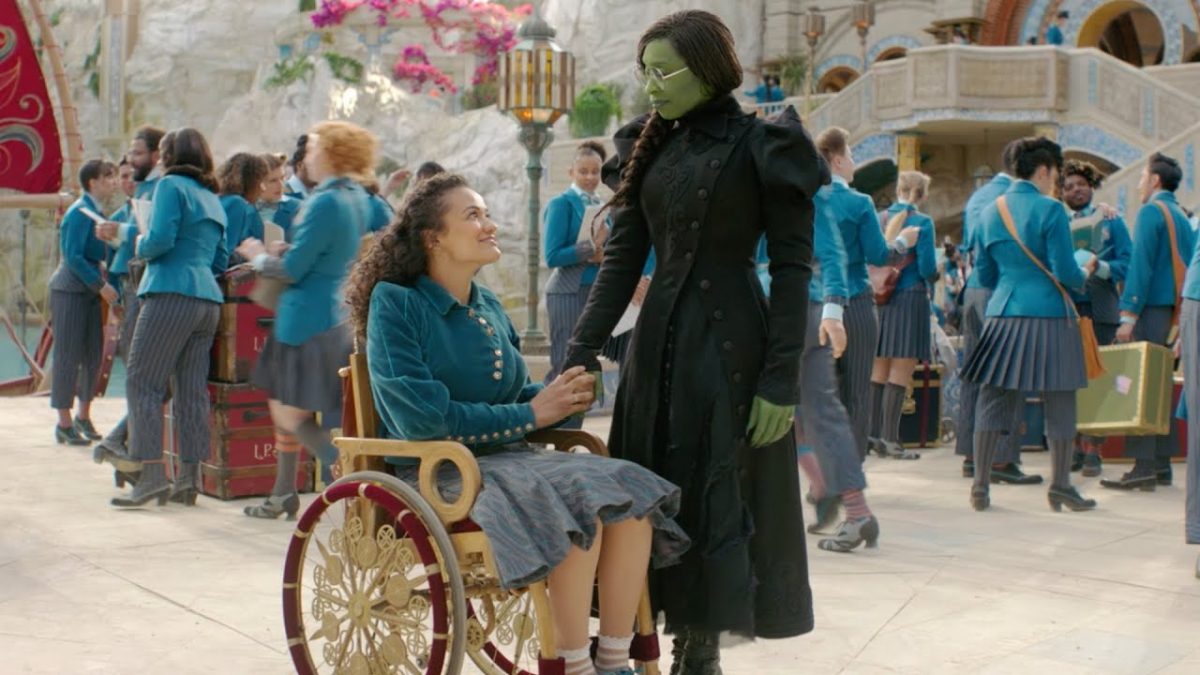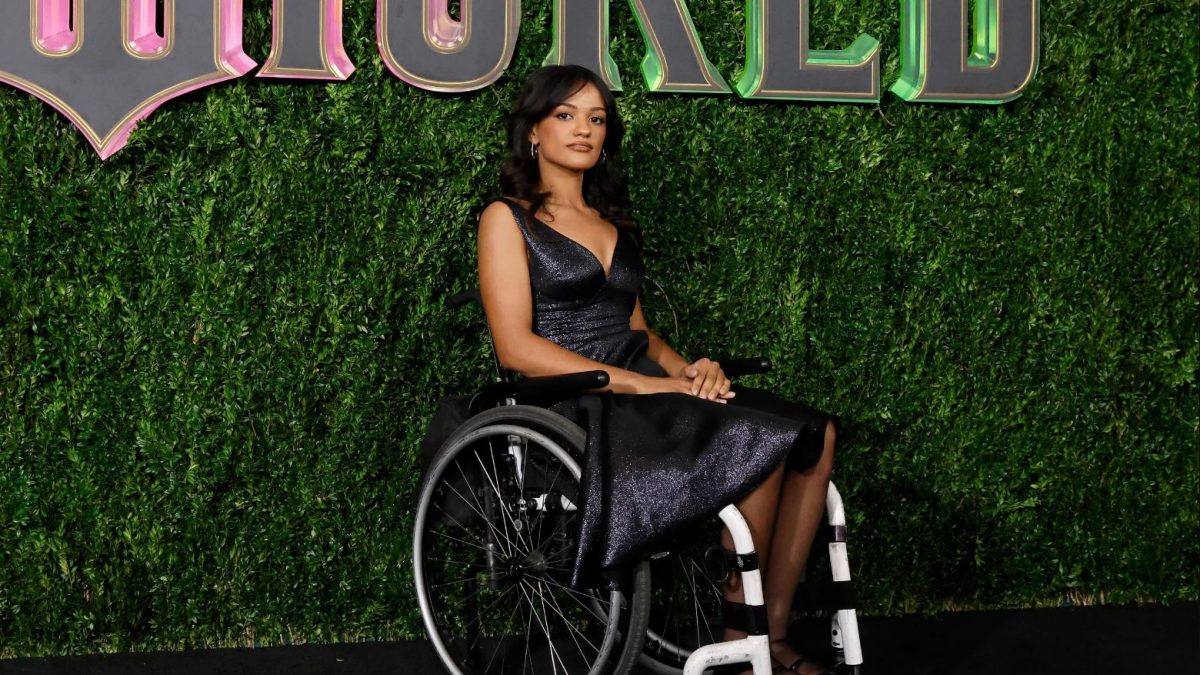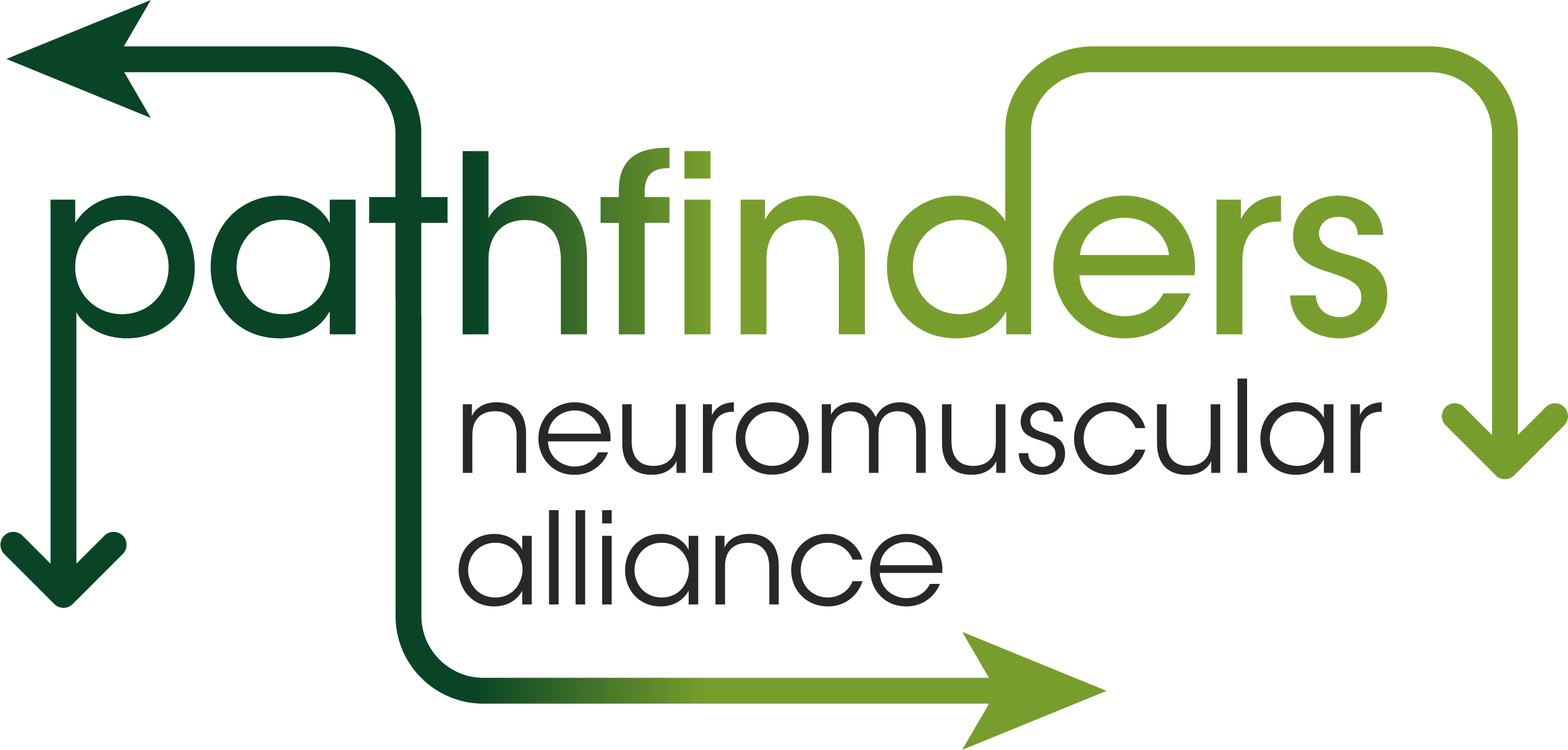
Our UpLift team member and film fan Connor shares his thoughts on disability representation in the new Wicked film.
Despite the musical Wicked premiering on Broadway in 2003, it took 20 years for disabled character Nessarose Thropp (sister of the Wicked Witch Elphaba) to be played by someone who actually uses a wheelchair, Marissa Bode. Nessarose is in fact her breakout role, having previously only acted on stage in local productions and in short films.
Wicked had an access coordinator on set, Chantelle Nassari, herself a wheelchair user. She would scout sets and feedback on any access difficulties so they could be addressed before filming, and Marissa Bode has been noted as saying that she never had a single problem with access when arriving on set. Surrounding the release of the film, the official Wicked YouTube channel posted behind the scenes videos of a day on set with the actors, with Marissa Bode’s video showing her accessible trailer with wheelchair lift and a remote-controlled wardrobe.
Inclusion was clearly important to producers of the film, and it extended to costume design too, with Nessarose’s chair maintaining the fantastical aesthetic of the film, while allowing Bode to have her usual level of mobility. She propels herself in her scenes, and multiple sets can be seen to have ramps. Nothing takes me out of a film faster than wondering how the hell a wheelchair user got somewhere inaccessible!
Of course another side of representation is the disabled characters themselves. Do they fall into any of the tired clichés like the charity case, or the inspiration for non-disabled people just for…doing everyday tasks? I’m happy to report that Nessarose doesn’t fall into any of these shallow archetypes. She is a character with strengths and weaknesses like anyone else, that are unrelated to her mobility needs. She’s smart and independent, but also somewhat ashamed to be seen with her sister Elphaba.
But sadly it isn’t all rainbows and ruby slippers, and Marissa Bode took to TikTok to speak out on ableist comments made about her character in the film. “It’s fine not to like a fictional character”, she said, and Bode agreed that her character Nessa “could be a better sister”.
However, Bode continued “I love a little jokey joke…that being said…aggressive comments and ‘jokes’ about Nessa’s disability itself are deeply uncomfortable because disability is not fictional”.
She said the comments are “low hanging fruit that too many of you are comfortable making”. “The most frustrating part about all of this is how scared I am to even post/talk about all of this”, Bode continued, visibly shaking while saying this. “I am scared also because I have seen first-hand what has happened to my disabled peers who are outspoken online when it comes to calling out ableism”.
“Thankfully I’m at a place in my life today where I can recognise these jokes are made out of ignorance. I couldn’t say the same about Marrisa ten years ago. It would have affected younger me a lot more. I’m worried a younger version of me is somewhere on the internet and is harmed by these comments.”

Even in some of the press surrounding the film, ableist attitudes come through. On one American talk show, an interview with Bode strays into ‘inspiration porn’ by focusing on her accident that left her paralyzed, while overwhelmingly saccharine music blasts over the top of childhood photos.
Like many of my disabled peers, I prescribe to the aphorism “nothing about us without us” when it comes to representation. We cannot have accurate portrayals of disabled people written and played by people with no life experience of disability. In the UK around 24% of people have a disability, but in Hollywood films, only about 2.5% portray a disability. Furthermore, 80% of these roles are played by actors who are not disabled. This shouldn’t be the case.
Progress can take time, but the casting of Marissa Bode, a terrific actor, singer, and actual wheelchair-user, as Nessarose, is a huge push in the right direction for disability representation. As is the work put in by production staff to make the filming inclusive and accessible.
Hearing Bode say on a red carpet interview that as a disabled person you “should never feel like you’re asking for too much when wanting accommodations”, will be so important for the next generation. Her words and actions off camera make her a great role model for any young disabled person. Something we also need more of.
To quote Elphaba in the song Defying Gravity – “I’m through accepting limits, ‘cause someone says they’re so.”
Tags – #Wicked #NessaRose #MarissaBode #Representation


